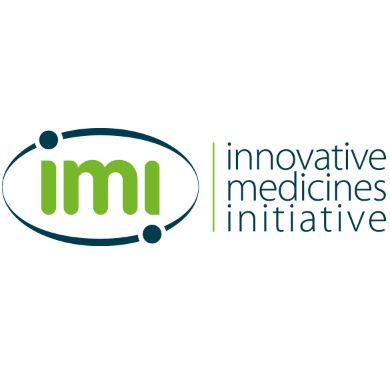
Development and validation of technology enabled, quantitative and sensitive measures of functional decline in people with early stage Alzheimer’s Disease (RADAR-AD) - IMI2-2017-12-01
Date de clôture : 24 oct. 2017
APPEL À PROJET CLÔTURÉ
APPEL À PROJET CLÔTURÉ
Specific Challenge:
The action generated by this topic will be part of the Remote Assessment of Disease and Relapse (RADAR) programme. The RADAR programme aims to test if new pre-emptive therapeutic development and clinical care strategies based on remote continuous monitoring are both scientifically feasible and also practically feasible as part of a wider healthcare system.
Early stages of Alzheimer’s Disease (AD) are associated with cognitive decline, overlapping with increasing functional decline (impairments in the ability to perform daily activities of living), leading to progressive loss of independence and escalation of caregiver burden and medical costs. While much effort has gone into developing sensitive measures of cognition, today there do not exist similar measures of subtle functional changes in early AD subjects which have direct impact on disease burden.
Recent data from long-term longitudinal cohorts have begun to delineate cognitive domains and functional tasks that are most affected by AD pathology. These include cognitive domains related to episodic memory, spatial orientation, processing speed and functional read-outs such as changes in ability to perform simple financial calculations, ability to use phone/computer, gait speed, driving performance, and ability to adhere to medications, amongst others. In addition, AD and related co-morbidities also have an effect on stress, mood and sleep. Impairment of these cognitive domains, functional capabilities and mood and sleep can be captured by new technology methods such as wearables, mobile devices and home based sensor technologies.
Scope:
- Analysis of existing longitudinal AD datasets and disease model(s) to identify functional domains or markers that are specific and sensitive to early stages of Alzheimer’s progression and most predictive of deleterious long-term outcomes such as loss of independence and nursing home entry. Such functional domains should include real-world activities such as ability to perform financial calculations, utilise the phone, navigate around the house/neighbourhood, adhere to medication schedule, interact socially with appropriate behaviour and other performed everyday tasks that require episodic memory and executive function. The applicants should identify and gain access to the appropriate longitudinal datasets that allow retrospective analysis of cognition, function and care-giver/ payer relevant long-term outcomes;
- Obtain and incorporate feedback from regulators (i.e. scientific advice) regarding potential use of technology-enabled functional end-points to be possibly considered in future for registration studies of drugs;
- Obtain and incorporate feedback from patients, care-givers and payers to ensure that functional domains being measured are relevant and meaningful;
- Implement a platform technology-enabled system of sensors and devices to continuously analyse data from identified functional domains, including smartphone, wearable and/or fixed home based sensors. This can concern measures that are passive (e.g. ability to use phone or computer key-board, gait speed etc.), or active (a challenge task requiring financial calculations etc.) with respect to patient interaction;
- Validate the platform technology-enabled function assessment system in a real-world clinical setting. This cross-sectional validation study will require short-term (approximatively 3 months) baseline assessment of function to establish a reliable cross-sectional measure of function using the built sensor-based system in cognitively normal, MCI and mild AD cohorts, in addition moderate AD and some severe AD patients will be also included.
The functional measures will be optimized for the following:
- ability to best differentiate different stages of the Alzheimer’s disease ( i.e. cognitively normal vs. MCI vs. mild AD vs. moderate AD ). Main focus will be to identify functional measures that best separate cognitively normal from early MCI patients;
- ability to show sensitivity to changes using appropriate modelling-based approaches;
- correlation with cognitive domains known to be effected in AD (e.g. episodic memory);
- correlation with established paper and pencil (self-reported) scales to measure function and cognition in AD;
- correlations with known risk factors for AD (BMI, physical exercise, sleep, etc)) for the possible identification of a putative pre-symptomatic cohort;
- correlation with known biomarkers of pathology, such as Positron Emission Tamography (PET) and Cerebro Spinal Fluid (CSF) measure, or clinical scale (ADAS-Cog) if available;
- correlation with care-giver burden and health care utilization costs;
- ease of use and adherence by technology users in real-world clinical settings
Expected Impact:
Development of objective and sensitive functional measures will enable potential dementia therapies to demonstrate functional impact and clinical meaningfulness of early intervention without requiring long follow-on studies thus reducing time and cost required to bring Alzheimer’s disease modifying drugs to market.
An objective, scalable, platform technology-enabled functional assessment system will also allow measurement of real-world impact of disease trajectory on individual patients in home and care-giver settings and help direct scalable and customized interventions that target specific functional deficits that promote independent living thus reducing cost and care-giving burden. Another valuable impact would be given by integrating organisations, e.g. Small-Medium-Size Enterprises (SMEs), having expertise in developing sensors and also in the area of processing and analyzinganalysing the data from sensors/ devices related to the scope of measuring the functional decline due to Alzheimer disease, as well as addressing the specific problem of the digital platform/user interface for these populations.
Furthermore, adding AD to the RADAR programme will make the entire system more attractive to professionals involved in dementia care, thus helping with the dissemination and adoption of the entire RADAR platform, ensuring interoperability and technology -evolution without disrupting the continuous build-up and extension of the knowledge collection and research practices across the whole RADAR scope (i.e. without having to resort to ad-hoc, un-reusable solutions for specific research topics, with their own visualisation etc.).
The system created via the RADAR–AD topic has the potential to become a widely used tool to measure and help improve quality of life in elder care homes and assisted-living facilities that focus on dementia and other age-related causes of functional decline.
Lien officiel : Disponible pour les utilisateurs enregistrés




S'il vous plaît Se connecter pour voir cette section